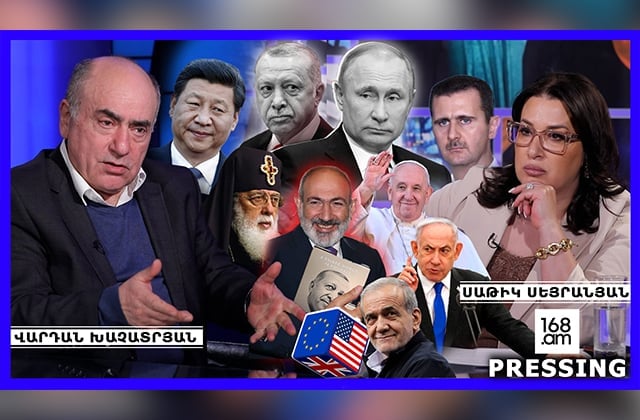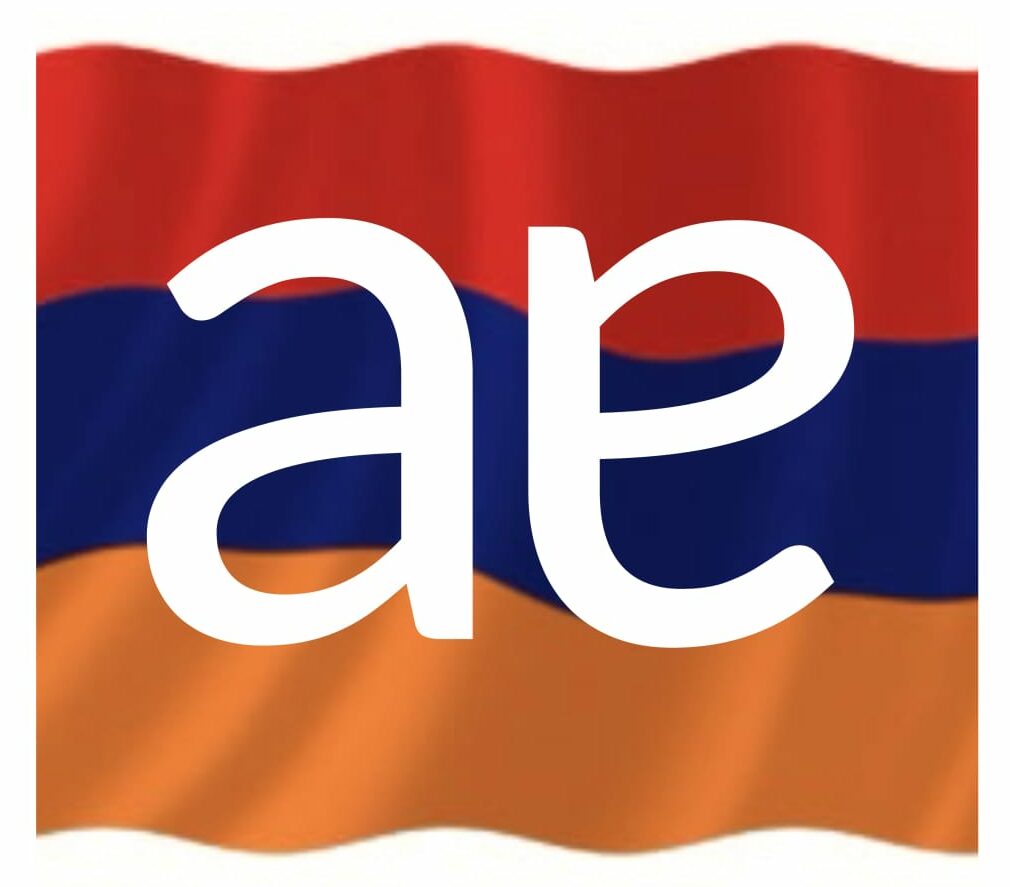
The interview on the program « Pressing » with Vardan Khachatryan, philosopher, sociologist, and former Armenian parliamentarian, sheds light on profound reflections on the current geopolitics of the region, Armenian governance, and the complex dynamics between Western powers and Russia. Below is a detailed breakdown of his main points.
One of the central points of the interview is the critique of how the West chooses and supports leaders in countries like Armenia. Khachatryan argues that when the West decides to promote a leader, it begins by evaluating the « degree of governability » of the country—meaning the leader’s ability to conform to external expectations. In this regard, he believes that Nikol Pashinyan’s government is seen by Western powers as an example of particularly « controllable » governance. This analysis is reinforced by the example of Pashinyan’s recent ministerial dismissals via SMS, a method that, according to Khachatryan, was used by the West to test the leader’s ability to exercise executive power under direct influence.
Khachatryan also discusses the situation in Georgia, where he asserts that the decline of Mikheil Saakashvili’s political influence is not simply the result of internal failure, but a process supported by the West. He claims that while the West criticises Saakashvili’s governance, it continues to sustain his political legacy to serve its own strategic interests in the region.
Regarding Ukraine, the analyst strongly criticises the political repression under Volodymyr Zelensky’s regime, emphasising the closure of all opposition parties and the violent crackdown on the streets. He condemns the hypocrisy of the West, which, under the guise of defending democracy, overlooks blatant human rights violations, because these actions ultimately serve Western geopolitical objectives in the region. For him, Ukraine is a glaring example of a « manufactured » democracy tailored to meet Western demands.
Khachatryan offers a critical reading of the events in Syria, where, according to him, the West has supported rebels and armed groups to weaken Bashar al-Assad’s regime. He laments the destructive role of the West in Syria, arguing that financial support for the opposition contributed to destabilising the country and prolonging the civil war. For him, Western powers aim to destabilise « non-aligned » regimes in the region to extend their influence.
Khachatryan does not hide his concern about Armenia’s national security following the loss of Artsakh (Nagorno-Karabakh), a situation he deems tragic for the country’s future. According to him, Armenia’s sovereignty is now threatened by external forces, and he warns against relying on foreign powers to guarantee Armenia’s security. He stresses that history has shown that foreign armies, whether from France or the United States, have never provided lasting protection to Armenia. In particular, he criticises France’s position, citing historical events, such as the relationship between France and Turkey during the Armenian Genocide period, to show that foreign commitments are often more about strategic benefits than real protection.
Khachatryan is particularly critical of Turkey, which he views as a central actor in the geopolitical project of « Great Turan, » aiming to establish a vast Turkish sphere of influence in Central Asia and beyond. According to him, this project is not limited to regional ambitions but also includes expansionist objectives toward Armenia, placing the country in an increasingly vulnerable position. He mentions the issue of the Russian military base in Armenia, and the idea of removing it, as a key element of this dynamic. For him, if this base were to be closed, it would pave the way for a weakening of Armenia’s strategic position and increase Turkish pressure on the country.
Khachatryan concludes his analysis with a call to historical memory, emphasising that Armenia must absolutely remember the lessons of the past, particularly tragic events like the Armenian Genocide, in order not to repeat the same mistakes. He argues that any attempt to « leave the past behind » and move forward without understanding the current historical and geopolitical dynamics would be fatal for Armenia’s future. In criticising the tendency to ignore historical lessons, he reminds that national security cannot be guaranteed without genuine strategic reflection on external threats, particularly those posed by Western and regional powers.
The interview with Vardan Khachatryan highlights a geopolitically and historically critical view of Armenia’s situation, as well as the international relations that shape its future. For Khachatryan, Armenia stands at a dangerous crossroads, where external forces and internal power games may compromise its sovereignty and security. He thus calls for a collective awareness of the need to protect national independence through responsible governance and coherent defence strategies, far from the illusions created by foreign powers.
Main source: 168.am

